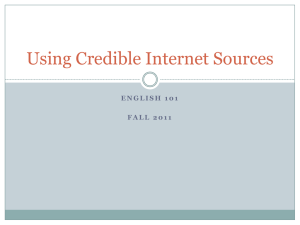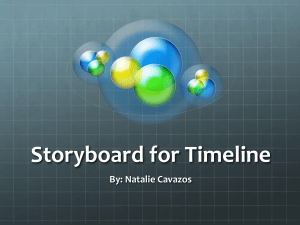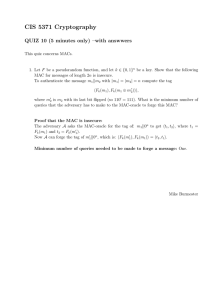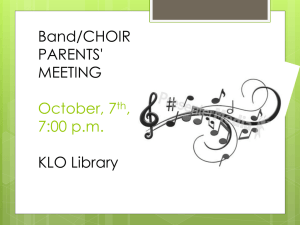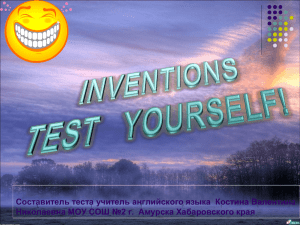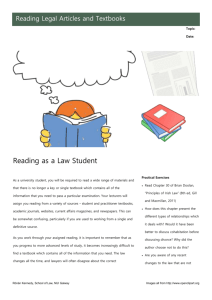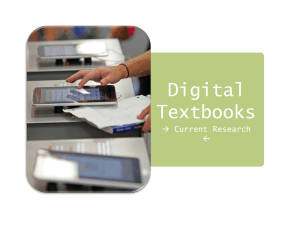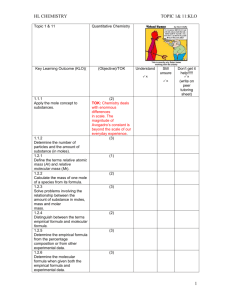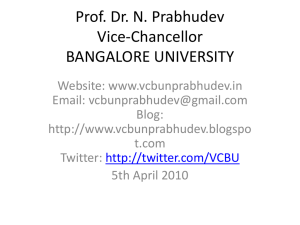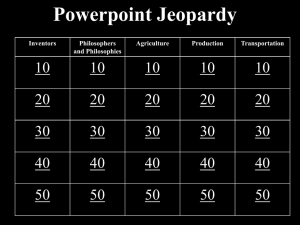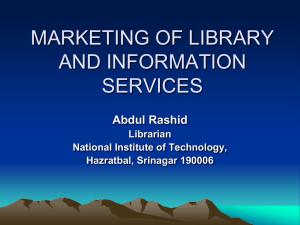Sc_Fair_Background_Research
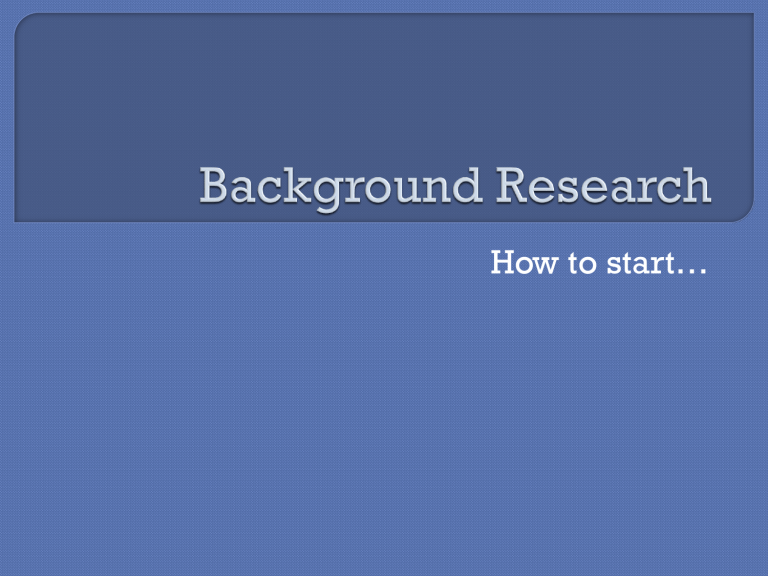
How to start…
So that you can design an experiment
To help you understand the science theory behind your experiment
So you can make a prediction about what will happen
So you will be able to understand what you observe
(regardless of whether your prediction was right or wrong)
In other words,
Science fair judges want to see that you understand why your experiment turns out the way it does.
Use a 5 step plan
1.
Determine your science fair question
2.
Brainstorm related keywords
3.
4.
5.
Generate questions to using the
“Question Words” table
Throw out irrelevant questions
Start your looking up background info
Step 1:
Start with the question you have chosen to investigate for your science fair project
Ex 1. How does flow rate affect plant growth in streams and rivers?
Ex 2. Does storing your orange juice at different temperatures affects its acidity?
Step 2:
Brainstorm all words that may be helpful when searching for information about your topic
Ex 1. Flow rate, stream/river, plant growth, etc.
Ex 2. Acidity, temperature, cooling liquid, etc.
Step 3:
Generate questions using the question words table. Substitute your keywords (or variations of your keywords) for the blanks. *see next slide*
Ex 1. How do you measure flow rate? Who invented plant growth? What is the relationship between plant growth and flow rate?
Question
Word
WHY?
Possible Questions
(you can think of others)
Why does ___________ happen?
Why does __________?
HOW?
WHO?
Why _______________?
How does ______ happen?
How does ______ work?
How does _____ detect _____?
How do you measure ________?
How do we use ______?
How ____________?
Who needs __________?
Who discovered ______?
Who invented _______?
Who ___________?
Question
Word
WHAT?
Possible Questions
(you can think of others)
What causes ________ to increase/decrease?
What is _______ made of?
What are the characteristics of ______?
WHEN?
WHERE?
What is the relationship between _____ and
_____?
What do we use _____ for?
What _______________?
When does ______ cause ______?
When was __________ discovered?
When ______________________?
Where does _______________ occur?
Where does __________ get used?
Where __________________?
Step 4:
Throw out irrelevant questions
Ex 1. How do you measure flow rate? Who invented plant growth? What is the relationship between plant growth and flow rate?
Step 4 (cont):
Sometimes you won't be sure whether a question is relevant or not, and that's always a good time to get the opinion of more experienced people like your mentors, parents, and teachers (two or three heads are always better than one)!
Step 5:
Start looking up your background info
Also plan to do background research on the history of similar experiments. That way you will know if someone has already found the answer to your question. If they have, then change or tweak your experiment so you can find new answers!
USE OTHER PEOPLE'S BRAINS!
Talk to people with more experience than you: your mentors, parents, and teachers.
Ask them:
"What other questions can I ask to find out more information about my project?"
"What science concepts should I study to better understand my science fair project?
Textbooks
Books in the KLO (or public) library
World Book online
EasyBib (research section)
Internet (from website you have evaluated as credible)
Your textbook OR other textbooks used in the school
Ask your teacher or the teacher-librarian to look at different science textbooks to see if there is information on your topic in any of them
Look on the KLO Library webpage to search the catalogue to see if there are any books on your topic
Once you have the title (ex. The Plant Cycle) of the book(s) and Call No. (ex. ENF 580 MOR) you can come to the library to find them on the shelf.
Ask the teacher librarian if you need help!
worldbookonline.com
When at school you don`t need a password.
See your teacher or ask the teacher librarian for the password if you will be using logging in from home
research.easybib.com
Use the research section to find articles
Use the bibliography section for correctly formatting your sources
Type in your keyword
Look at “Online” info or “Academic” info by switching tabs
Be sure to use credible sources
One way is by checking the “rating”
Wherever you find your info be sure you understand it!
If you don’t know some of the vocabulary either look it up OR find a different source of information at YOUR GRADE
LEVEL
KLO Library Website
